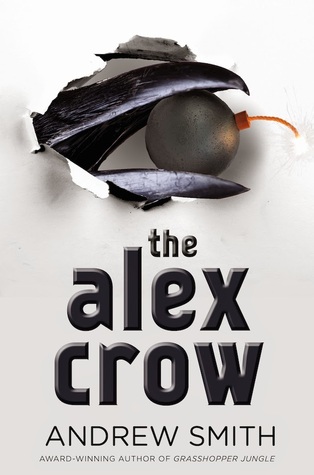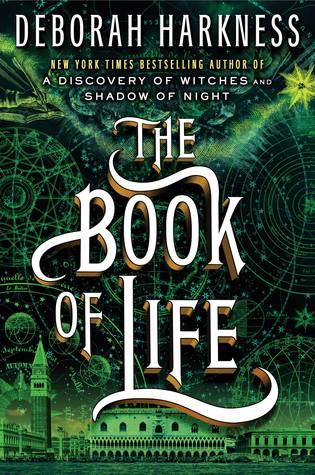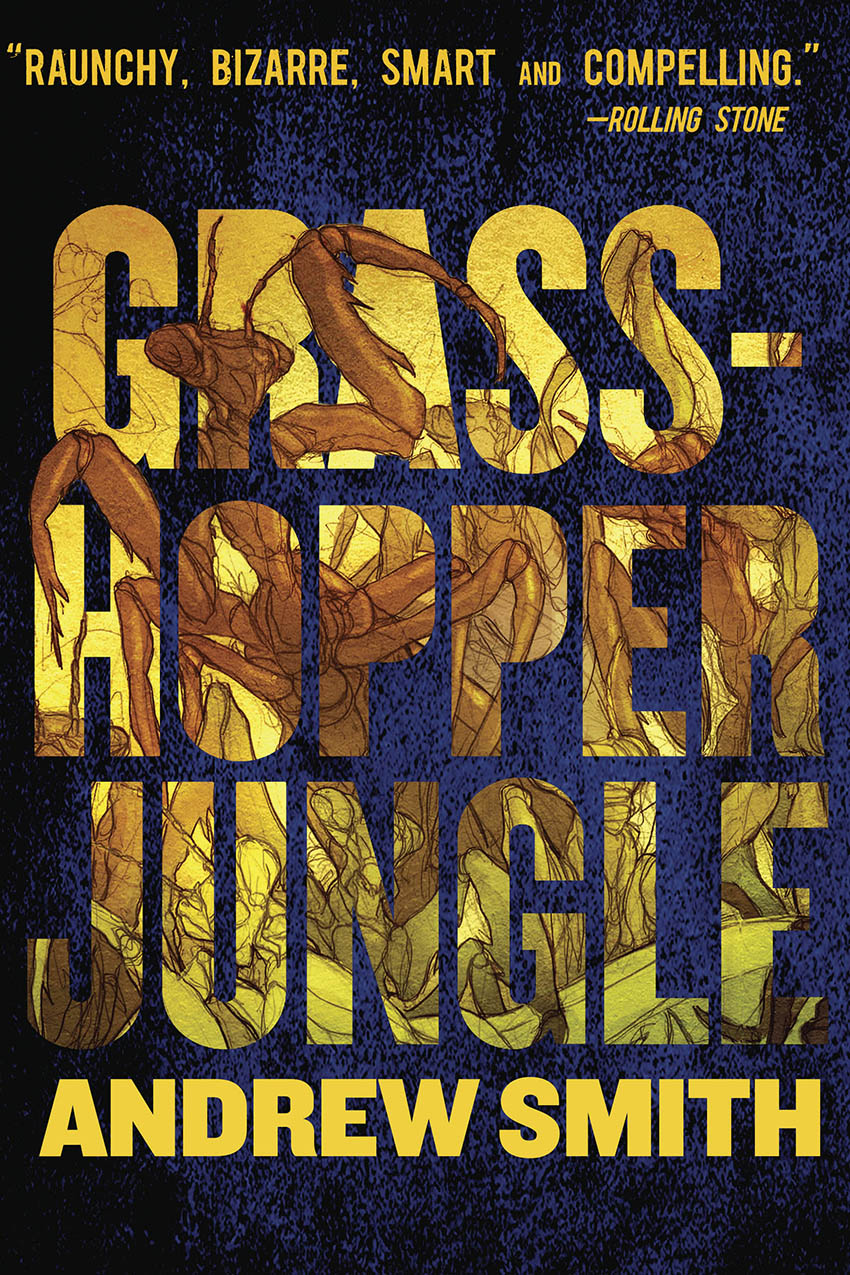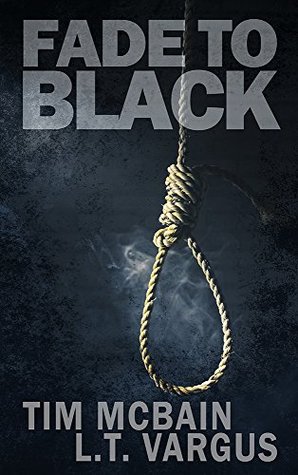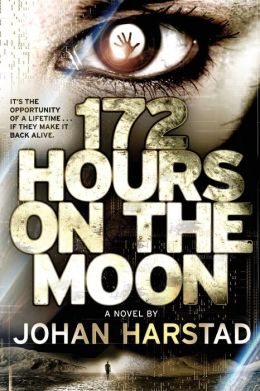In this pseudo-translated
historical text, originally written by an author from a time in our own
alternate distant future, we learn of a world before that time yet occurring
after the fall of our own (or possibly our recent past). As stated by the
book’s own summary, this “blends elements of Nazi Germany, Soviet Russia, and
Golden Age Hollywood.” The main story
itself is that of a world that had been nearly destroyed due to events not
limited to, but largely centered on, the contamination of the world’s water,
causing nekrosis in all those it infected.
However, various dying cultures managed to come together and settle
around a clean water source and survive, though on a much smaller scale than
they previously existed. Now, that same
contamination has reappeared and tensions are growing within and amongst the
various cities. In the greatest and most
powerful of these cities, Joshua City, the leader uses this reemergence as an
excuse to declare war on the others, starting with the herdspeople of Ulan-Ude,
as the first step in gaining power of all seven cities. However, this military campaign has led to
civil unrest within Joshua City’s own borders. The foremost of the points of view shown to us
belong to that of Nikolas, Marcik, and Adrian.
As noted in the summary, this book is fictitious but still possesses a very real air about it. Along with footnotes, there are moments within the false history/story—which is to say, not including the prologue(s)—when the nonexistent original author, Aleksander Tuvim, and the two real authors but self-described translators, Okla Elliott and Raul Clement, will pause the story and speak to the readers directly, elaborating on certain events in this history, providing both their own opinions and context on matters in such a way that it adds to the wonderful blurring of the line between historical retelling and fictitious story.
Though not a completely encompassing element of the The Doors You Mark Are Your Own, the book almost comes off as a ‘before’ story that so many popular series in entertainment lack. This isn’t to say that the story isn’t outstandingly brilliant in its own right, but it is still an interesting element to consider. In most stories, movies, or shows—most good ones, anyway—that begin with the key conflict already ongoing will have, at some point, a character briefly address the history of how and why the conflict came to be. While that may address and clarify some key points, the audience is still left wondering about other details. Given that this is the first installment of a lengthy trilogy, I’m interested to see whether the series will stay anchored in the current setting of Nikolas, Marcik, and Adrian’s timeline, as this book is itself just a ‘translation’ of Tuvim’s documentation of recent historical events, or if the story will precede to see change in his time, as the ‘translators’ of the book are well into the future of Aleksander Tuvim’s timeline. Regardless, the book as a whole is marvelously crafted and has left me wondering just how the story will proceed.
What is in a name? At the end of the 8 page prologue—which is nothing when compared to the bulk of the book—a pivotal character (really, the pivotal character) in Tuvim’s modern day has a flashback. While it means nothing at the time, it carries with it an implied weight. At first the reader is only left to wonder at what it might mean, who are the people mentioned in it, what is so important about the name, what does ‘Messenger’ mean? In fact, the prologue as a whole is well executed, giving bits of information to the reader, dropping names and events, keeping the reader curious throughout the book as they wait to actually see it unfold, see how the present came to be. The prologue’s vagueness is perfect and it’s a promise of an exciting story to those who read on, a promise that it keeps.
Nikolas the Revolutionary. A doktoral student turned revolutionary, and younger brother to Marcik. Nikolas is a realist, aware of how the world works, with ambition and the wherewithal to achieve his goals; he is also aware that he doesn’t know everything and, as such, is always able to concede to that fact. While he may sometimes come off as arrogant, he does what he believes is best for the largest number of people, which brings about the obvious pros and cons of any philosophy closely resembling “the needs of the many outweigh the needs of the few.” He wanted to become a doktor because he believed that he would be able to find a cure for the nekrosis caused by the water contamination. When he found he couldn’t work within the system to help the people, he instead decided to change the system in order to help the people. One problem with his character development is that his progression in certain areas fall slightly into the category of ‘Instant Expert.’ It isn’t much, but to even be in this category to a small degree is disheartening for a book with events that are otherwise very realistic and well thought out. At the same time, while he gains high skill levels almost unbelievably quickly, he utilizes them in a believable way, making it a hard point to judge. Do we attribute his growth speed to being a ‘natural’ or a ‘genius’ and overlook it or do we let that point stand out as a flaw in the story? I’ll leave that decision to each individual reader.
Marcik the Soldier. A Guardsman, a soldier of Joshua city, and older brother to Nikolas. We are introduced to a Marcik who suffers in no small part from arrogance, similar to his brother Nikolas. However, where Nikolas at least has acceptable reason for his arrogance, Marcik has none, being an unlikeable character upon his introduction. During his military training, as well as the experiences he has while active, he is broken of that arrogance, and fully comes into his own as a character whose tale is a blast to follow. We follow him for the entirety of his military career: leaving home for basic training, being deployed and surviving through many small encounters, getting captured and tortured, and many, many, many more events that to merely name would ruin.
Adrian the Nurturer. A doktoral student who roomed with Nikolas in his first semester of school and is an ardent believer in the god of the Book of the Before-time. Where Nikolas is a realist, Adrian is an idealist, aware of the limitations of reality, but chooses to look past them at what could be rather than what is most likely. That being said, Adrian is effected deeply when his ideals are actually confronted and destroyed before him. He spends much of the story doing good, but is always conflicted when weighing his thoughts and actions against his perceived correct moral thoughts and actions. Thanks to his time sent with Nikolas, Adrian spends a lot of time thinking about the morality and subjective nature of the world they live in and the events that unfold within it. What truly makes his character interesting is seeing why he is so important when the story already has two brothers on their own side of a revolution. Is he a neutral party who has the ability to sway either side? Or is it something more?
There are other characters who hold their own import, but it is around these three that the stories revolves, and the beauty of these three characters is simple. While Adrian is neutral but, arguably, a good character, neither Nikolas nor Marcik are good or evil. If you’ll excuse the binary, both teeter back and forth across the line between the two sides without ever fully falling into one. In fact, it is on questioning this binary of good and evil that the story ends, though with a promise of even more development in the next installment.
With a book this size, over 700 pages, there is going to be a fair amount of world building. This story is marvelously crafted, the characters are intelligently designed, and the events are both thrilling and thought-provoking. While this may come down to nothing more than personal preference, the book can take a while before sinking its hooks into the reader, as the majority of the world building takes place all at once in the beginning of the story. There are multiple stories all happening at once so, while it is written very well and is in no way boring, the first hundred or so pages are very exposition heavy. This is the way the world is, this is how people have their allegiances. Important stuff but it can take a decent amount of time to build steam. However, get through that (not to say there is nothing exciting or interesting happening, there is) and you’ll be rewarded with an enthralling story that seems to explode before your eyes.
As I said earlier, this book is beautiful. I’d recommend it to anyone who enjoys reading and who I think could make it through all 700+ pages of this trilogy’s first installment. While some may be turned away by that length, and the promise of 1400 more pages, I know there are plenty of readers out there who will revel in that fact. To those readers, spend some time getting lost in this pure-baikal story.
Rating: 4.5/5
As noted in the summary, this book is fictitious but still possesses a very real air about it. Along with footnotes, there are moments within the false history/story—which is to say, not including the prologue(s)—when the nonexistent original author, Aleksander Tuvim, and the two real authors but self-described translators, Okla Elliott and Raul Clement, will pause the story and speak to the readers directly, elaborating on certain events in this history, providing both their own opinions and context on matters in such a way that it adds to the wonderful blurring of the line between historical retelling and fictitious story.
Though not a completely encompassing element of the The Doors You Mark Are Your Own, the book almost comes off as a ‘before’ story that so many popular series in entertainment lack. This isn’t to say that the story isn’t outstandingly brilliant in its own right, but it is still an interesting element to consider. In most stories, movies, or shows—most good ones, anyway—that begin with the key conflict already ongoing will have, at some point, a character briefly address the history of how and why the conflict came to be. While that may address and clarify some key points, the audience is still left wondering about other details. Given that this is the first installment of a lengthy trilogy, I’m interested to see whether the series will stay anchored in the current setting of Nikolas, Marcik, and Adrian’s timeline, as this book is itself just a ‘translation’ of Tuvim’s documentation of recent historical events, or if the story will precede to see change in his time, as the ‘translators’ of the book are well into the future of Aleksander Tuvim’s timeline. Regardless, the book as a whole is marvelously crafted and has left me wondering just how the story will proceed.
What is in a name? At the end of the 8 page prologue—which is nothing when compared to the bulk of the book—a pivotal character (really, the pivotal character) in Tuvim’s modern day has a flashback. While it means nothing at the time, it carries with it an implied weight. At first the reader is only left to wonder at what it might mean, who are the people mentioned in it, what is so important about the name, what does ‘Messenger’ mean? In fact, the prologue as a whole is well executed, giving bits of information to the reader, dropping names and events, keeping the reader curious throughout the book as they wait to actually see it unfold, see how the present came to be. The prologue’s vagueness is perfect and it’s a promise of an exciting story to those who read on, a promise that it keeps.
Nikolas the Revolutionary. A doktoral student turned revolutionary, and younger brother to Marcik. Nikolas is a realist, aware of how the world works, with ambition and the wherewithal to achieve his goals; he is also aware that he doesn’t know everything and, as such, is always able to concede to that fact. While he may sometimes come off as arrogant, he does what he believes is best for the largest number of people, which brings about the obvious pros and cons of any philosophy closely resembling “the needs of the many outweigh the needs of the few.” He wanted to become a doktor because he believed that he would be able to find a cure for the nekrosis caused by the water contamination. When he found he couldn’t work within the system to help the people, he instead decided to change the system in order to help the people. One problem with his character development is that his progression in certain areas fall slightly into the category of ‘Instant Expert.’ It isn’t much, but to even be in this category to a small degree is disheartening for a book with events that are otherwise very realistic and well thought out. At the same time, while he gains high skill levels almost unbelievably quickly, he utilizes them in a believable way, making it a hard point to judge. Do we attribute his growth speed to being a ‘natural’ or a ‘genius’ and overlook it or do we let that point stand out as a flaw in the story? I’ll leave that decision to each individual reader.
Marcik the Soldier. A Guardsman, a soldier of Joshua city, and older brother to Nikolas. We are introduced to a Marcik who suffers in no small part from arrogance, similar to his brother Nikolas. However, where Nikolas at least has acceptable reason for his arrogance, Marcik has none, being an unlikeable character upon his introduction. During his military training, as well as the experiences he has while active, he is broken of that arrogance, and fully comes into his own as a character whose tale is a blast to follow. We follow him for the entirety of his military career: leaving home for basic training, being deployed and surviving through many small encounters, getting captured and tortured, and many, many, many more events that to merely name would ruin.
Adrian the Nurturer. A doktoral student who roomed with Nikolas in his first semester of school and is an ardent believer in the god of the Book of the Before-time. Where Nikolas is a realist, Adrian is an idealist, aware of the limitations of reality, but chooses to look past them at what could be rather than what is most likely. That being said, Adrian is effected deeply when his ideals are actually confronted and destroyed before him. He spends much of the story doing good, but is always conflicted when weighing his thoughts and actions against his perceived correct moral thoughts and actions. Thanks to his time sent with Nikolas, Adrian spends a lot of time thinking about the morality and subjective nature of the world they live in and the events that unfold within it. What truly makes his character interesting is seeing why he is so important when the story already has two brothers on their own side of a revolution. Is he a neutral party who has the ability to sway either side? Or is it something more?
There are other characters who hold their own import, but it is around these three that the stories revolves, and the beauty of these three characters is simple. While Adrian is neutral but, arguably, a good character, neither Nikolas nor Marcik are good or evil. If you’ll excuse the binary, both teeter back and forth across the line between the two sides without ever fully falling into one. In fact, it is on questioning this binary of good and evil that the story ends, though with a promise of even more development in the next installment.
With a book this size, over 700 pages, there is going to be a fair amount of world building. This story is marvelously crafted, the characters are intelligently designed, and the events are both thrilling and thought-provoking. While this may come down to nothing more than personal preference, the book can take a while before sinking its hooks into the reader, as the majority of the world building takes place all at once in the beginning of the story. There are multiple stories all happening at once so, while it is written very well and is in no way boring, the first hundred or so pages are very exposition heavy. This is the way the world is, this is how people have their allegiances. Important stuff but it can take a decent amount of time to build steam. However, get through that (not to say there is nothing exciting or interesting happening, there is) and you’ll be rewarded with an enthralling story that seems to explode before your eyes.
As I said earlier, this book is beautiful. I’d recommend it to anyone who enjoys reading and who I think could make it through all 700+ pages of this trilogy’s first installment. While some may be turned away by that length, and the promise of 1400 more pages, I know there are plenty of readers out there who will revel in that fact. To those readers, spend some time getting lost in this pure-baikal story.
Rating: 4.5/5


